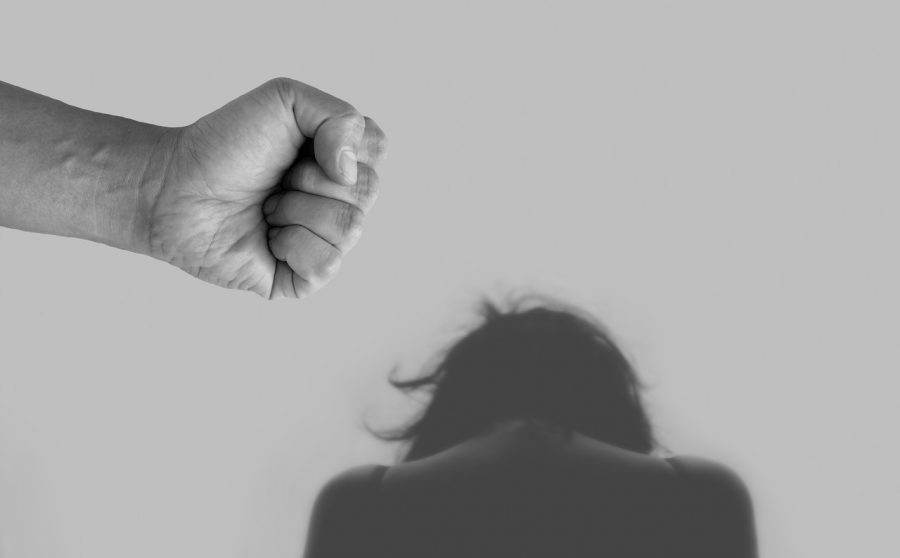Barron: How Utahns can help domestic violence victims during COVID-19
Morgan Barron writes, “for some Utahns, staying home and staying safe are mutually exclusive.” (Courtesy Needpix)
April 26, 2020
On March 24, the Salt Lake City Police Department tweeted a graph showing a sharp, sustained increase in domestic-violence-related calls over the previous two weeks in Salt Lake, roughly coinciding with Governor Herbert’s COVID-19 announcement asking Utahns to stay home. On April 9, Utah County’s commissioner tweeted that Utah County’s 911 dispatch has reported a 75% increase in domestic violence calls. Sadly, this spike is not an anomaly, nor is it confined to Utah. While staying home is vital in fighting community transmissions of COVID-19, police and victim advocate organizations across the country and globe have reported a marked increase in domestic abuse as communities began sheltering in place. Friends and family members have always been crucial members of victim support networks and will continue to be — especially while social distancing. To save lives, every Utahn must be educated on how to identify abuse indicators remotely and be aware of resources available to victims during the pandemic.
To experts, the increase in domestic violence worldwide is unsurprising. The pandemic has increased economic uncertainty — a common stressor in abuse — while simultaneously creating ideal circumstances for abuse to occur. Social isolation is a classic tool used by abusers to control their victims, and now mandated stay-at-home orders and social distancing practices have only made these actions easier. Sheltering in place has also increased abusers’ access to victims, increasing their control. Marianne Hester, a Bristol University sociologist who studies abusive relationships, said when victims suddenly have to be home, the abuser has more opportunity to dictate what the victim can or cannot do.
The pandemic has also prevented some victims from getting help. Jennifer Oxborrow, the executive director of the Utah Domestic Violence Coalition, said her organization is hearing from people who had to wait for days to make a private phone call or go online because they are sheltering with their abuser. Additionally, COVID-19 has affected support networks, making it far more difficult for individuals to get help or escape a situation. Survivors may feel unable to ask to move in with friends and other family members, especially older loved ones, as they may introduce COVID-19 to the household or pose a financial strain. Even some shelters have struggled to house people right now. Erin Jemison, public policy director for the YWCA Utah, said the YWCA shelter has turned survivors away during the pandemic.
As Utahns stay home “flattening the curve” to save lives, it can be difficult to hear about lives put at risk by these same policies. However, it is important for the larger community to be aware of what some of their friends and family members may be experiencing while social distancing. Community members have an important role in supporting victims of domestic abuse. Not only are friends and family members more likely to notice abuse indicators when checking in on a loved one, but survivors of domestic violence and sexual violence are more likely to confide in friends and family members than police officers.
It can be difficult for loved ones looking in on a situation to distinguish warning signs from cautious social distancing behavior. However, experts recommend being on the lookout for isolation that “goes above and beyond what we’re all experiencing right now: if you’re trying to reach out to someone and they’re not able to respond to you at all [or] if something feels off.” Individuals who are living with someone who previously displayed belittling, violent or controlling behavior towards them are more likely to be experiencing abuse. Local advocates are encouraging Utahns to call the Utah Domestic Violence Coalition at 1-800-897-5465 if they are concerned about someone’s safety or are unsure how to start a conversation about abuse.
Even as resources are stretched thin and shelters are working to follow social distancing directives, local organizations have emergency housing services. Additionally, local organizations are still offering services to help people navigate civil and criminal legal proceedings, including obtaining online protective orders, filing for divorces and child custody. If you feel comfortable and are able to offer a loved one experiencing abuse a safe place to stay, remember to follow self-quarantining guidelines to ensure the health of everyone living in the space.
As Utah continues to weather the effects of COVID-19, it is important that we keep all aspects of public health at the forefront of our actions. Sadly, for some Utahns, staying home and staying safe are mutually exclusive. If you are worried about a friend or family member’s safety, do not hesitate to reach out to local advocates. If you are aware of or learn of abuse, supporting the victim is essential. It is important to remember that while being able to provide potential options can be empowering, making decisions on behalf of the survivor is harmful. During the pandemic, lives depend on Utahns being cognizant of abuse indicators and resources available for victims just as much as lives depend on Utahns staying home.








